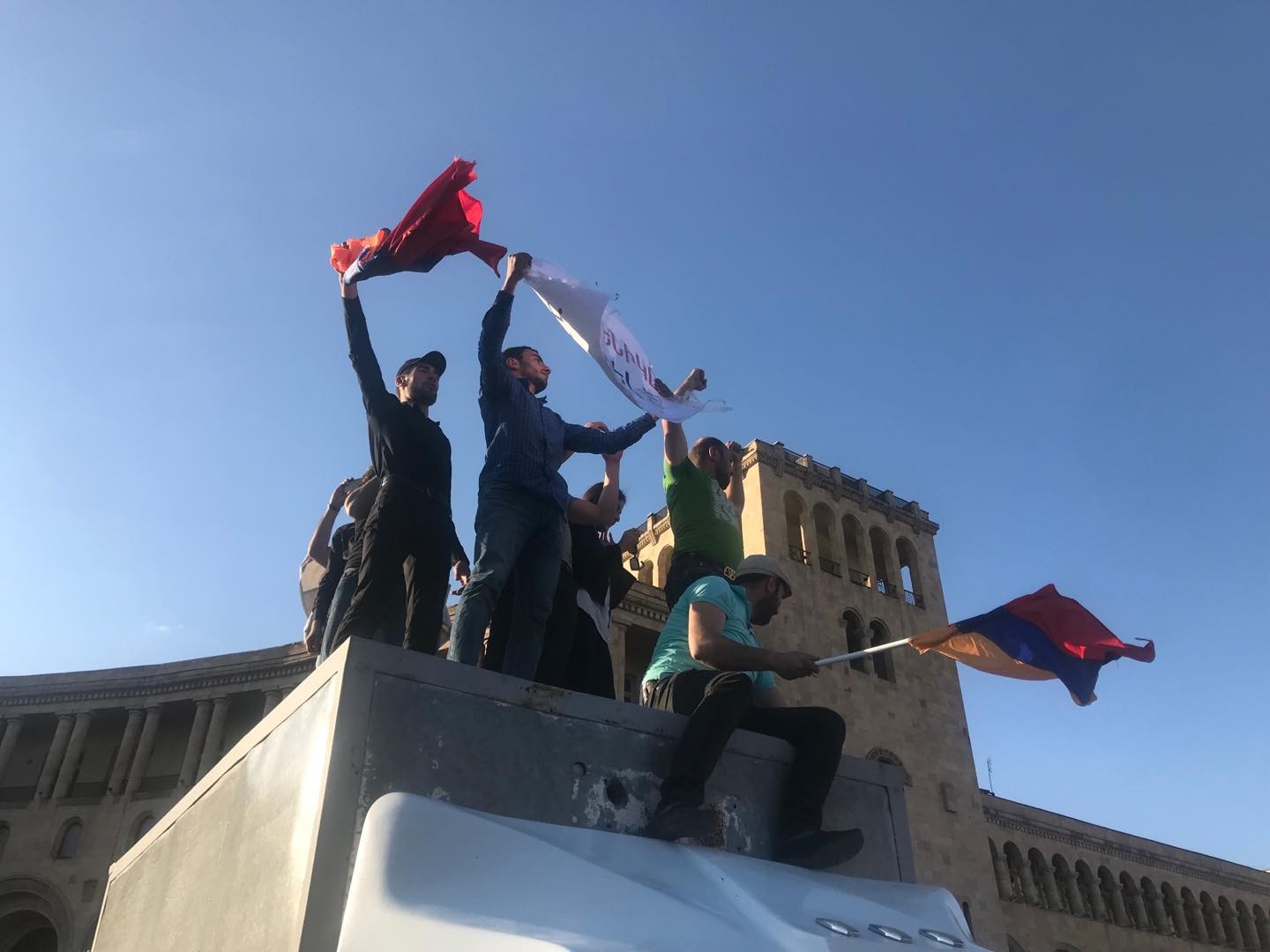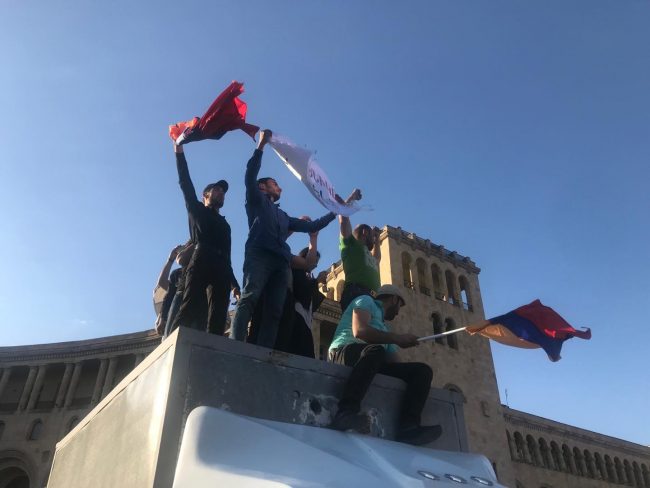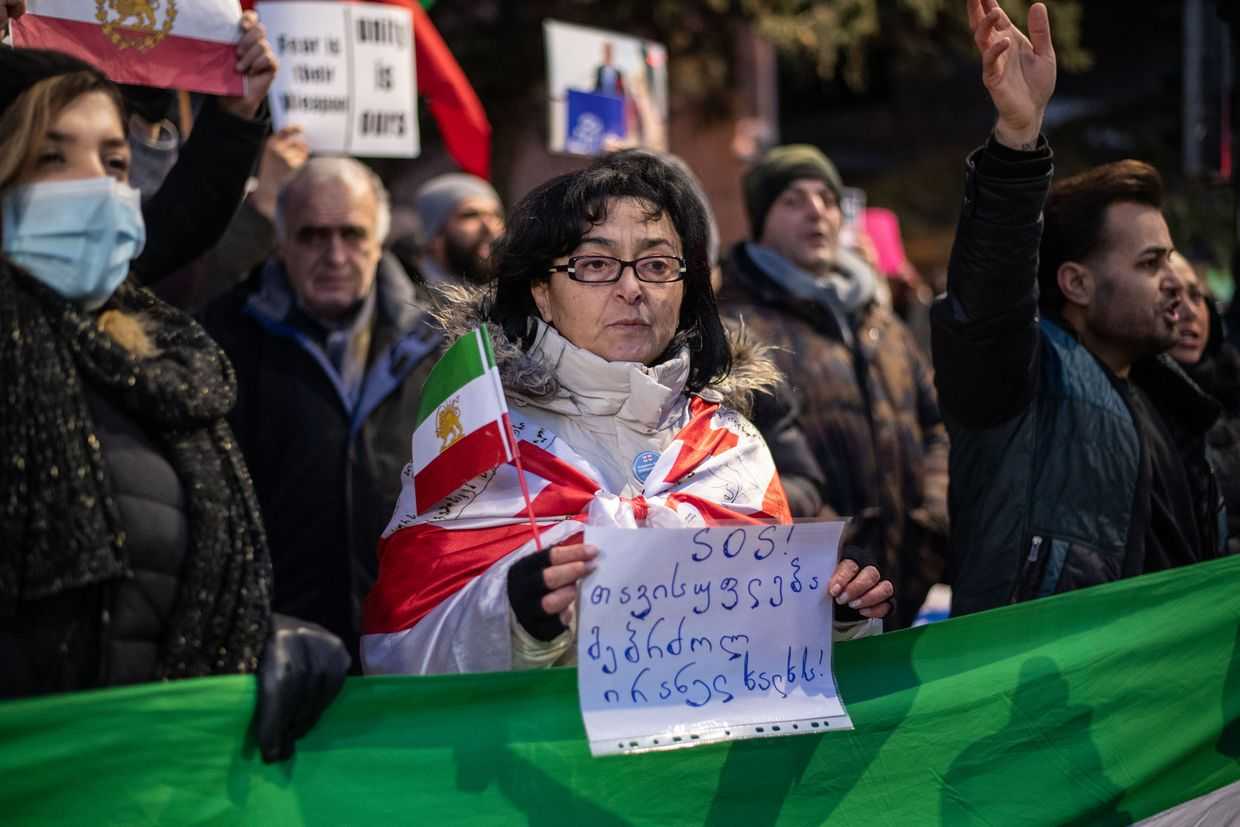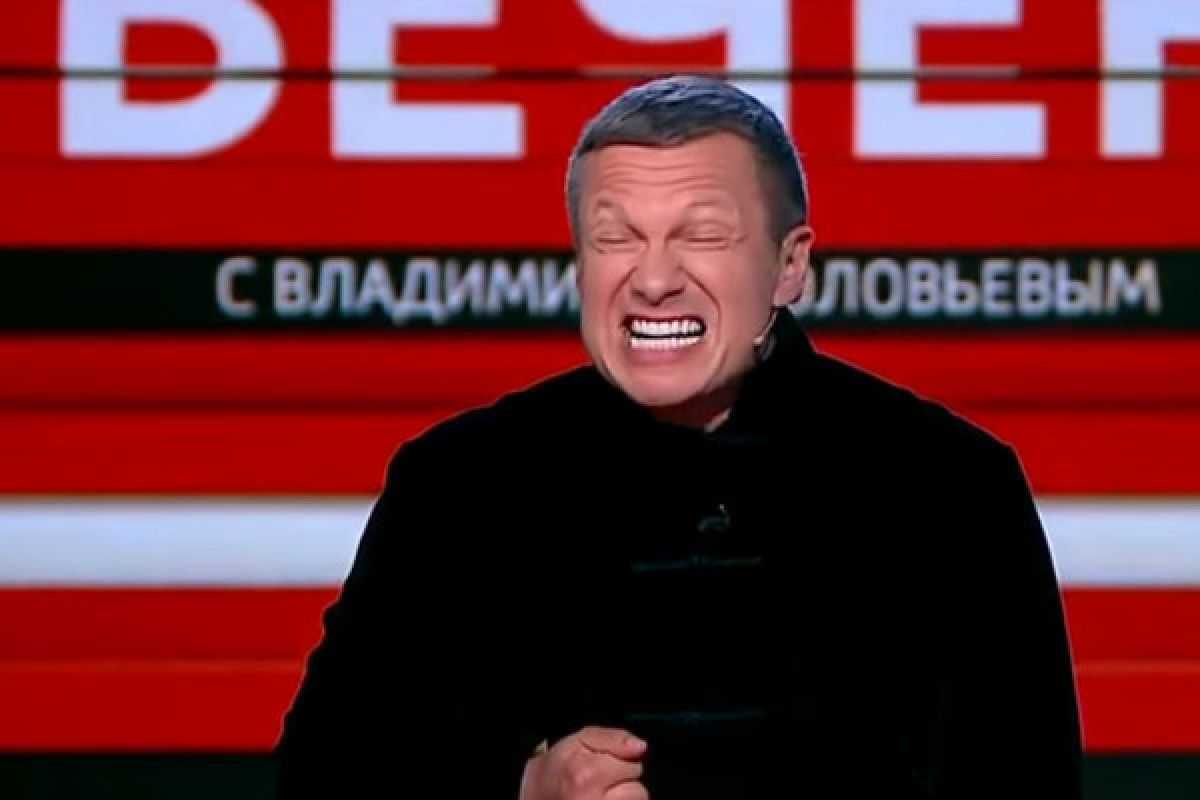Pashinyan demands ‘unconditional capitulation’ of Armenia’s ruling party as protests continue


 Armenia’s acting prime minister, Karen Karapetyan, has rejected opposition leader Nikol Pashinyan’s demands he step down to be replaced by a ‘people’s prime minister’. Pashinyan’s demand has been widely interpreted as referencing himself.
Armenia’s acting prime minister, Karen Karapetyan, has rejected opposition leader Nikol Pashinyan’s demands he step down to be replaced by a ‘people’s prime minister’. Pashinyan’s demand has been widely interpreted as referencing himself.
On Thursday, the Republican Party reiterated its readiness to discuss ‘any issues’ without preconditions and declared that former prime minister Serzh Sargsyan would be replaced as the party’s chairman.
Pashinyan demanded the ‘explicit and unconditional capitulation of the Republican Party to the people’ and warned that if Karapetyan were made prime minister, protesters would blockade the parliament building and the prime minister’s office in Yerevan.
‘We are saying at this square that the Armenian people have a candidate for prime minister and [Armenia’s parliament] the National Assembly factions must reckon with this political reality and nominate that candidate by consensus’, RFE/RL’s Radio Azatutyun quoted Pashinyan.
Selecting a ‘people’s prime minister’ to lead an interim government until new elections can be held has been one of Pashinyan’s key demands following Serzh Sargsyan’s resignation as prime minister on Monday. Political parties had a week to nominate a new prime minister after the resignation.
A meeting between Karapetyan and Pashinyan was scheduled for Wednesday morning, but was cancelled after Karapetyan refused to discuss Pashinyan’s key demands, including the appointment of a ‘people’s prime minister’.
During a press conference later that day, Karapetyan questioned the idea of a ‘people’s prime minister elected on the street’ and argued that early elections must be held to legitimise Pashinyan’s potential premiership.
Pashinyan’s supporters resumed protests on Wednesday morning, demanding the ruling Republican Party fully relinquish power.
The Armenian Revolutionary Federation (ARF), the ruling Republican Party’s junior coalition partner, pulled out of the coalition on Wednesday and called on parliament to elect a new prime minister ‘lawfully and within the framework of the constitution’.
The Republican Party still holds a majority of 58 seats of 105 in Armenia’s parliament, the National Assembly. The opposition, consisting of Tsarukyan’s Prosperous Armenia Party, the Yelk (Way Out) block, of which Pashinyan’s Civil Contract Party is a part, and the ARF, hold 47 seats in total. While Prosperous Armenia and all three party’s from the Yelk block have now declared their support for the protests, the ARF is still debating doing so.
Constitutional changes
Small protests loosely organised around the slogan ‘No to Serzh’ began in March. Since 13 April, tens of thousands have come out to the streets daily in what Pashinyan has called a ‘velvet revolution’. The protests were initially limited to opposing former president Serzh Sargsyan’s appointment as Prime Minister, but their demands have now expanded to include a new government from outside the ruling Republican Party, and new elections to be held under a new electoral code.
OSCE observers noted that the previous parliamentary elections, in 2017, were ‘tainted by credible information about vote-buying, and pressure on civil servants and employees of private companies’.
Following constitutional changes passed in 2015, Armenia’s parliament, the National Assembly, is now in charge of electing the prime minister. With Armenia’s shift from a semi-presidential to a parliamentary system, the prime minister is the most powerful position in the country.
Having previously played down suggestions he would run again for political office, Sargsyan, having served the maximum 10 years as president, announced on 11 April that he would seek the position of Prime Minister. On 17 April, he was sworn in as PM by Armenia’s parliament, the National Assembly.









